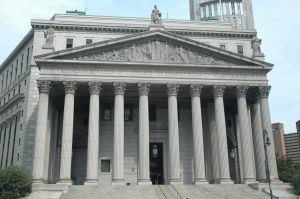New Jersey Employment Law Decision Addresses When Commissions Are Part of “Wages” for New Jersey Wage Payment Law
New Jersey wages are governed by a set of laws: the New Jersey Wage and Hour Law, the Wage Collection Law, the Wage Theft Act, and the Wage Payment Law. These New Jersey employment laws govern the amount and timing of wages owed to New Jersey employees. A New Jersey appeals court issued a precedential decision on when commissions must be paid under the Wage Payment Law, which governs when wages must be paid, in the case of Musker v. Suuchi, Inc.
Payment Law, which governs when wages must be paid, in the case of Musker v. Suuchi, Inc.
Background
Rosalyn Musker was employed as a senior platform delivery manager by Suuchi, Inc. Part of her compensation was commissions on the gross revenue from sales of software, software related services, and related subscriptions for apparel manufacturers. These sales were governed by a company commission plan. The commission plan contemplated continuing revenue streams. Only revenue from these sources, and no others, was governed by the commission plan.
When covid hit in 2020, Suuchi decided to sell personal protective equipment (“PPE”), and Musker was involved in a deal for the sale of $32 million in PPE. Before the deal closed, Suuchi announced that it would pay commissions for PPE sales, and explained the terms. These commissions on PPE were not covered by Suuchi’s commission plan, structured differently, and the based on net rather than gross revenue. They were also based on one-time sales rather than continuing revenue streams. Suuchi paid Musker $100,000 on her PPE sales. However, she maintained that she due $1,315,957.93 in PPE sales commissions, and thus Suuchi wrongfully withheld over $1 million in earned commissions.
Musker’s Lawsuit
Musker filed suit against Suuchi and several of its executives in the Superior Court of New Jersey for breach of contract, tortious interference and violation of the New Jersey Wage Payment Law. The parties conducted discovery and then filed motions for summary judgment. The trial court denied all the summary judgment motions except for Suuchi’s motion to dismiss the claim for violation of the New Jersey Wage Payment Law. The judge dismissed that claim, finding that the PPE sales commissions at issue were not “wages” covered by the Wage Payment Law. It allowed the breach of contract claim to proceed.
Normally appeals will not be heard until after the entire case is resolved, but Musker appealed to the Appellate Division of the Superior Court. It refused to consider the appeal, ruling that it must wait util after trial on the remaining claims. Musker then appealed to the Supreme Court of New Jersey, which ruled that the Appellate Division should have heard the appeal. The appeal was then sent back to the Appellate Division for consideration of whether the commissions on PPE sales were covered by the Wage Payment Law.
The Appellate Division ruled that the commissions from PPE sales were not “wages “ covered by the Wage Payment Law.
The Appellate Division’s Decision
The Appellate Division explained that while the Wage Payment Law included commissions for services, it contained an exclusion for “any form of supplementary incentives and bonuses which are calculated independently of regular wages and paid in addition thereto.”
The court examined the two different types of commissions at issue. It found that commissions under the regular commission plan would have been covered, as would most commissions. However, the commissions for the PPE sales were outside Musker’s normal work as it was not part of Suuchi’s regular business and therefore not part of her regular wages. It was a unique payment that was a “supplementary incentive” outside Suuchi’s normal business, and thus independent of Musker’s “regular wages and paid in addition thereto.” It was “above and beyond” payment owed to Musker for her labor or services, and was computed outside its normal processes.
The Appellate Division therefore denied Musker’s appeal land remanded her case back to the Superior Court for a trial on her remaining breach of contract and tortious interference claims.
The court made clear, however, that exclusion from coverage under the New Jersey Wage Payment Law is the exception rather than the rule, and that this was an exceptional set of facts. It also made clear that this exception was not included in the other wage laws.
The Takeaways
While most commissions are considered wages for purposes of the New Jersey Wage Payment Law, an exception exists for supplemental incentives outside normal wages or commission plans, and these will be enforced by the courts. However, employers would be wise to not tread closely to the line, because New Jersey’s wage and hour laws are expansively construed to find protections for employees.
Moreover, this was a somewhat unique case where only the Wage Payment Law could have applied. The remainder of New Jersey’s wage and hour laws – the New Jersey Wage and Hour Law, Wage Collection Law, and Wage Theft Law – all contain “commissions” within their definition of “wages,” and do not contain an exception for “supplemental incentives.”
Questions About New Jersey Wage and Hour Laws
If you have questions about New Jersey’s wage and hour laws, you can schedule a consultation with one of our New Jersey employment attorneys by filling out the contact form on this page or calling (973) 890-0004. We can help.
 New Jersey Lawyers Blog
New Jersey Lawyers Blog

